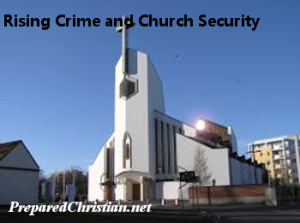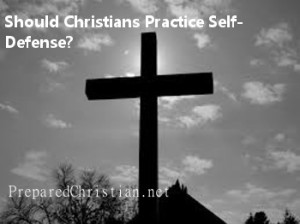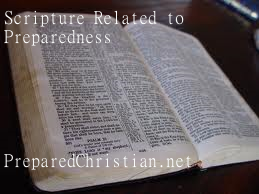
I can remember hearing a story or two every year about some type of violent act or disruption breaking out in a church. The biggest one that comes to mind is the attack at New Life Church in Colorado. I was having a conversation with a man from my HaganaH class (Israeli martial art) and the topic of church violence came up. I began researching it and I was a bit shocked at how quickly violence and crime committed at churches is rising.
Carl Chinn has been involved in creating emergency response procedures for churches since 1991. In 2005 he was part of a team that created the security plan for his home church, New Life Church in Colorado Springs. He was one of four security team members that put that plan into action the day the gunman attacked in 2007.
Carl Chinn has kept track of deaths at churches since 1999. The amount of incidents was relatively low, with 10 or less incidents a year from 1999 to 2005. Starting in 2006 the numbers slowly began to increase and then skyrocketed in 2009 with 105 incidents and 53 deaths. In 2010 there were 118 incidents with 51 deaths and so far this year (2011) there have been 37 incidents and 16 deaths. The incidence of violence at churches from 2005 to 2010 have gone up over 1,000% from 10 to 118. You might be thinking that 118 incidents is still relatively small compared to how many churches there are. What if it were happening at Daycare centers? If the same level of violence was taking place in Daycare centers, there would be outrage and rightfully so.
The Christian Security Institute has an article by Chuck Chadwick called Church Crime Statistics. In it he explains how he searched the National Archive of Criminal Justice and found that “The data file for 2008 has over 5 million records and among the data structure is a field called “Location”. Low-and-behold location code 4 is for “Church/ Synagogue/Temple”. There were over 24,445 crimes attributed to location code 4 (Churches/Synagogues/Temples). I am willing to concede that not all are going to be Christian churches, but the majority would be.”
The data he gathered was only for 2008, I would be interested to see data from 2000 – 2011 to see if there is a rising trend. I am willing to bet there is. From these two sources we can see the trends rising, but why is that? I think the first reason is because of the economy; people are growing more and more desperate. Another reason is from Mathew 24:12 “Because of the increase of wickedness, the love of most will grow cold”. I’m not saying we’re in the end times, but with every day that passes, we get closer and satan knows it.
What can we do?
Now that we are aware of the danger of rising crime and violence committed at churches, how do we act prudently to mitigate this danger? Awareness, planning and preparing, just like any other danger.
Awareness
It wasn’t that long ago that churches left their doors unlocked and there was no need for security. As I mentioned, just a few years ago there were less than 10 murders on church grounds, whether related or unrelated to the ministries on the campus.
Part of the problem is convincing those who cannot see the danger that there is one. Finding out if your church is aware of the rise of violence and if they have a security plan or team in place is a great first step. Pointing them to this article or to the links I mention in this article could be used.
There is a segment of Christians who believe that God will protect them and that it is wrong to use force to defend themselves, or others. I have recently written on this subject in an article I called Should Christians Practice Self-Defense?. In it I explain why I think modern day Christians have Christ’s meaning of “turn the other cheek” wrong.
Planning and Designing Security Procedures
Consulting a lawyer and Insurance Agent are a must when designing your security plans. I’ll cover some things that might be legal in one region and not in another, or that might not be covered by a particular insurance policy underwriter.
One of the biggest parts of security is having a plan to put in place for the various threats that the church may face. Churches have some unique security needs as they offer a wide variety of services, from childcare to counseling, high tech equipment for services or productions to multiple cars in the lot unattended.
This should translate to procedures for the multiple risks, such as, car break in, missing child, stolen property, vandalism, shows of disrespect or attention getting to assault and active shooter.
Security at many facilities can be inflexible and for many of the policies at a church they should be as well. However someone walking in to a church looking frustrated, angry or confused, could actually be depressed, worried or just a hurting soul in need of a loving touch from God, in the form of a listening ear.
Because we do not know a person’s heart like Christ did, we have to let their intentions be shown by their actions. We should walk in love until someone’s actions require intervention. Then we must execute the security plan for the given situation.
Preparing
How do you prepare to put your security plan into play? What kind people should fill the security roles? What kind of training should people have?
I read an article written by Charles Grennel called “Sheep, Wolves and Sheepdogs”. It’s about a lecture given by William J. Bennett to the United States Naval Academy on November 24, 1997. It is really worth reading, but I want to mention a couple of things here.
Mr. Bennett states “Most of the people in our society are sheep. They are kind, gentle, productive creatures who can only hurt one another by accident. We may well be in the most violent times in history, but violence is still remarkably rare. This is because most citizens are kind, decent people, not capable of hurting each other except by accident or under extreme provocation. They are sheep.”
He goes on, “Then there are the wolves who feed on the sheep without mercy. Do you believe there are wolves out there who will feed on the flock without mercy? You better believe it. There are evil men in this world and they are capable of evil deeds. The moment you forget that or pretend it is not so, you become a sheep. There is no safety in denial.”
Lastly, he states, “Then there are sheepdogs and I’m a sheepdog. I live to protect the flock and confront the wolf. If you have no capacity for violence then you are a healthy productive citizen, a sheep. If one has a capacity for violence and no empathy for one’s fellow citizens, then you have defined an aggressive sociopath, a wolf. But what if you have a capacity for violence, and a deep love for your fellow citizens? What do you have then? A sheepdog, a warrior, someone who is walking the unsheltered path.”
In the security field, having the capacity for violence is a needed trait, but because we’re talking about churches, there are other characteristics that are needed as well. I think the person should be bearing the fruit of the spirit in their every day life. I think they should have a firm faith and be in the Word. My thinking is this; satan knows our weaknesses, we need to be grounded in the Word, wearing the Armor of God, ready to wrestle with principalities in the spiritual realms (Eph 6-12) and flesh and blood. Paul, however, was only partly right. Sometimes we do battle with worldly beings that are influenced by the spiritual.
Another quality that I believe is a must is meekness. I was listening to a Podcast by Chip Ingram and he gave one of the best definitions of meekness that I have heard. He said something along the lines of “Meekness isn’t weakness, its power under control. That Arabian horses have immense power and could cause much damage, but they keep their power under control.”
During my research for this article I found a company called Intruder Response that really impressed me. They are a security training company that trains schools, businesses and churches. They understand the unique situations that churches are in and they know how to work with them. In an interview hosted on their site, one of the founders, Vaughn Baker, mentions that a security person at a church needs to have a servants heart and a warriors mind. I couldn’t have put it better myself.
Armed or Unarmed?
I think every church should have security plans in place. However, the level of security presence may vary. Some churches might be able to have the plans in place and have to do little else. Others may need video surveillance and security personnel trained in lethal and non-lethal self-defense. There may be some church security forces that, because the church is on the same property as a school or because of state law or for liability reasons, are restricted from carrying firearms on the premises.
Real-world self-defense classes may be a good fit here. I take a martial art called HaganaH, which is an Israeli inspired fighting system. It teaches armed and unarmed fighting and weapon defenses. It is designed to quickly train people, it does not take years to become proficient.
Personally, I think having a lethal option available is preferred. You can choose to use less force but the opposite is not true. If your security force is armed, they should be trained. If you are carrying a gun, you need more training than CCW. The CCW is a basic competence test and also covers the legal issues involved with carrying and shooting someone. Am I saying that you need to be SWAT capable? No, but clearing misfires, shooting multiple targets and many other things are not covered under the CCW class.
Training is important because you do not rise to the occasion; you default to your competent level of training. In other words, you need training, but taking one training class does not make you trained. If you frequently practice at the range what you learned in a class that is a different story.
WHY?
New Life Church
On December 9th, 2007 an armed man walked onto the campus of New Life Church. There were roughly 7,000 people on the church grounds at the time. The gunman had three firearms on him; an AR15 rifle, a .40 caliber handgun and a 9mm handgun. There was also an AK47 in his car. I remember hearing a report that the gunman had 400 rounds. The gunman opened fire in the parking lot and made his way into the main foyer; shooting five people, killing two. The only reason he wasn’t able to murder many more is that he was met by trained and armed security personnel that brought the fight to him. Sheepdogs.
After September 11, 2001, churches swelled. I believe the terrorists are aware of that. I have had the belief for some time now that if there is another terrorist attack in America, the churches will be a second wave of attacks. This article called Expert: Security Checkpoints Near Soft Targets May Soon Become The Norm Has the same concern for many soft targets. It states “Counter terrorism expert Juval Aviv said terrorists seeking revenge for Osama bin Laden’s death will turn to attacks less dramatic than the destruction on Sept. 11 — focusing instead on soft targets like hotels, places of worship and mass transit hubs.”
Please click here to vote for Prepared Christian as a top Prepper site!
If you liked this article please think about sharing it on the social media listed below, thanks!






